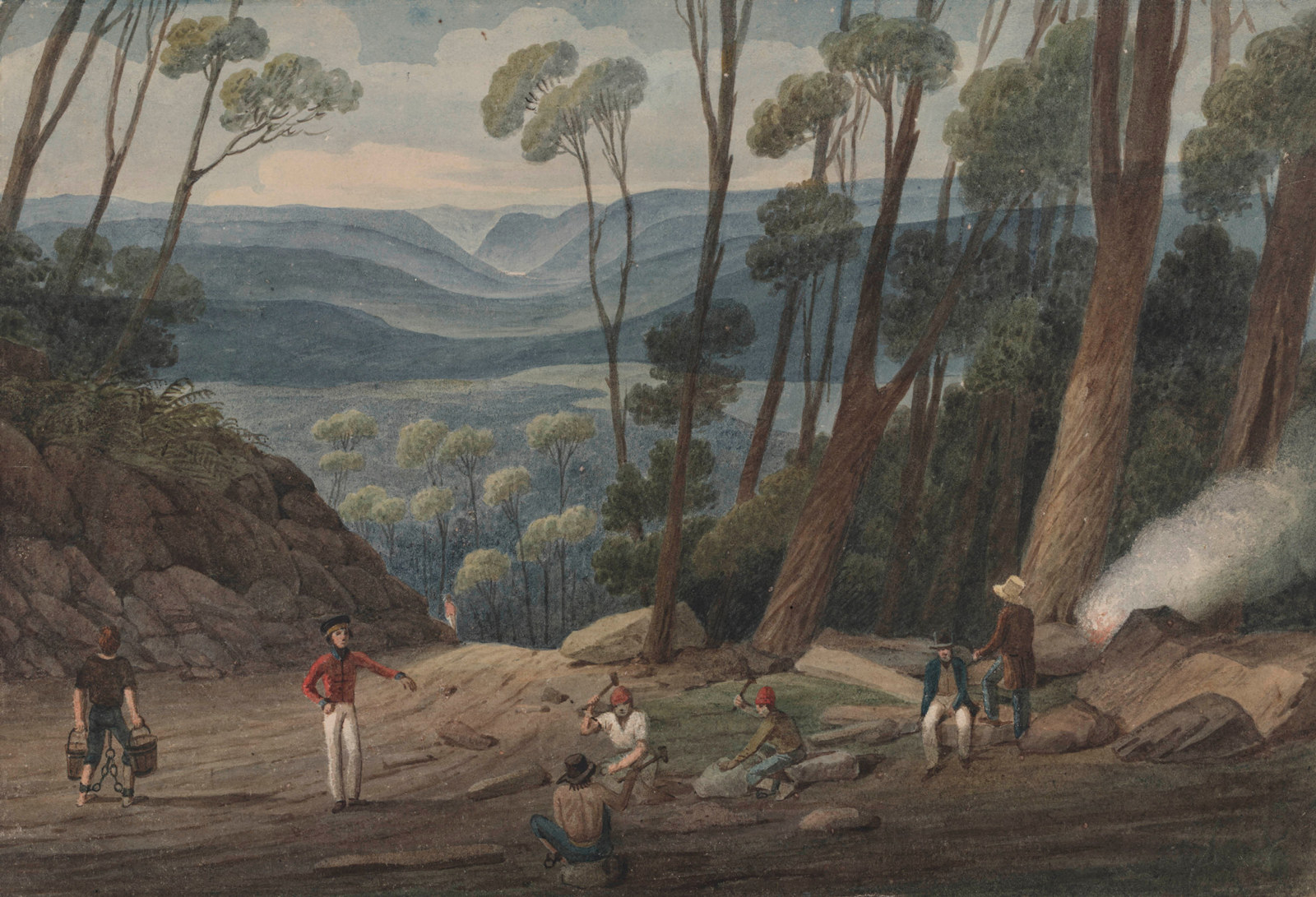Bigge inquiry
The Bigge Commission of Inquiry into the State of the Colony of New South Wales (1819–23) identified significant shortcomings in the convict system but concluded that New South Wales could be made a fit place for punishment. Commissioner Bigge made recommendations to reshape the colony and make transportation ‘a fate to dread’.
The majority of convicts were to be kept out of the towns and assigned to the more prosperous free settlers, who could take greater care over discipline and reformation.
Other convicts were to form labour gangs to carry out land clearing, and those of bad character were to be sent to new and distant settlements. Convict boys were to be kept at Carters’ Barracks, on the site of present-day Central Railway Station, and taught trades to make them useful when assigned to settlers. Convicts’ property was to be confiscated and held over until they were reformed, and ex-convicts were not to be given land or assistance once they became free. Accurate central records were to be kept of all offences committed in the colony.
Bigge’s recommendations included closer supervision of assigned convicts, restrictions on privileges based on good behaviour, and tightening of punishment at penal settlements. These measures were designed to make New South Wales a more credible penal colony, ‘an object of real terror to all classes of the community’. Bigge’s plan formed the basis of penal policy for the next two decades before the cessation of transportation in New South Wales.

Convict Sydney
Back to business
From 1822, with the British government keen to cut costs and encourage pastoral expansion, part three sees the removal of convicts from town
Published on